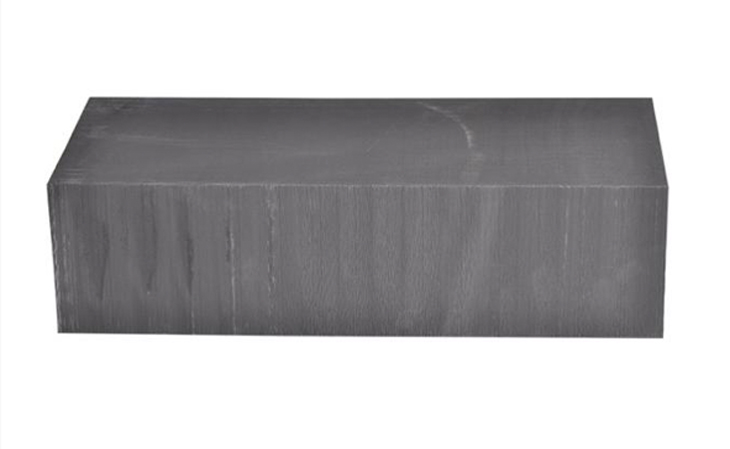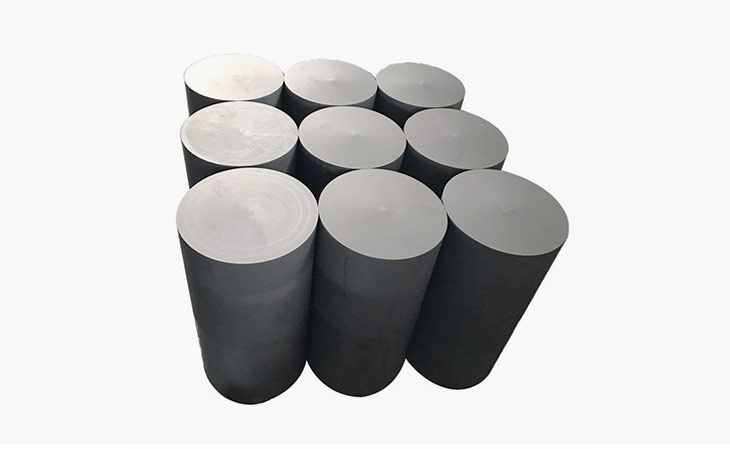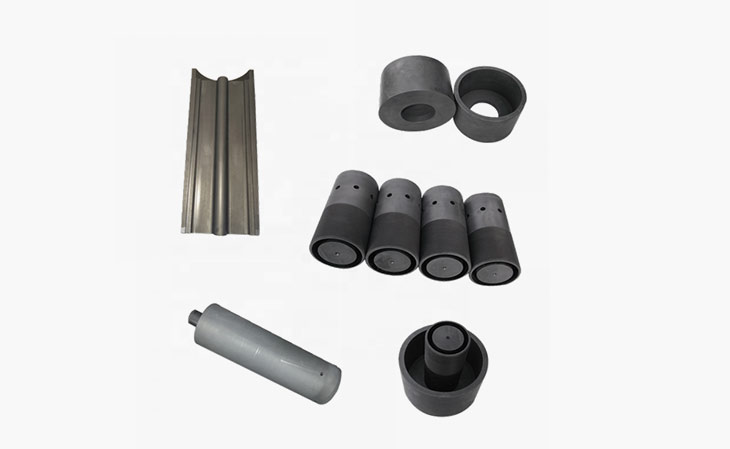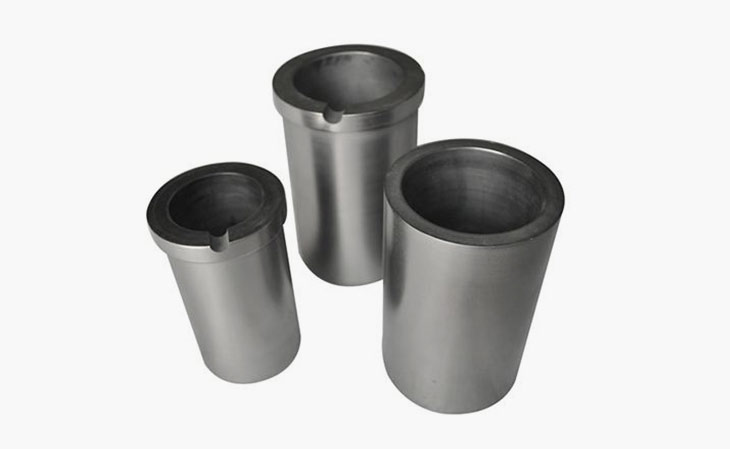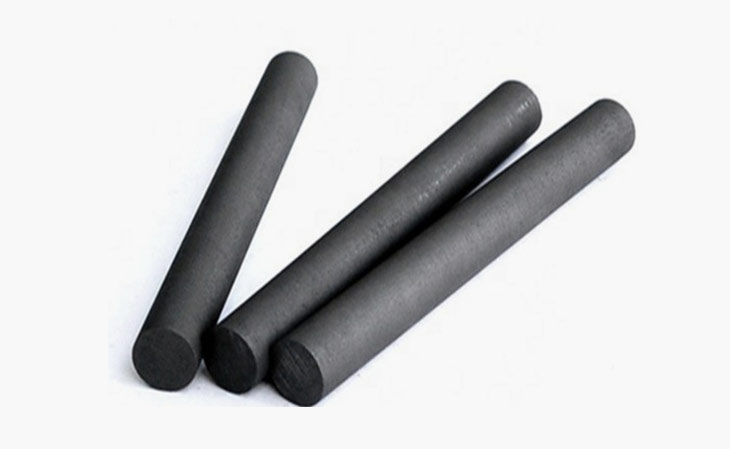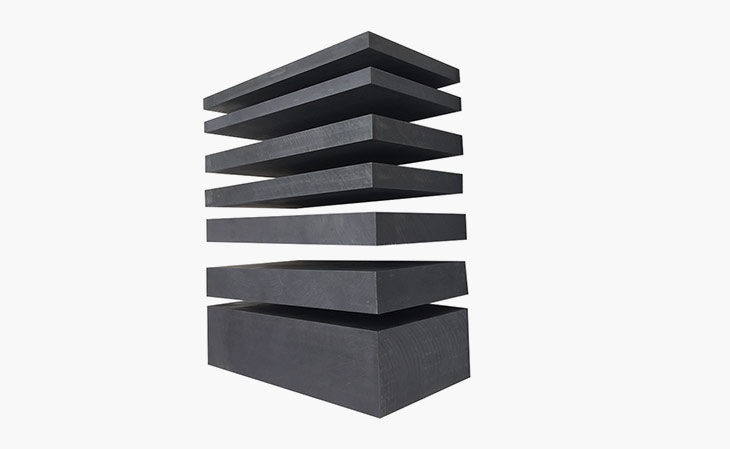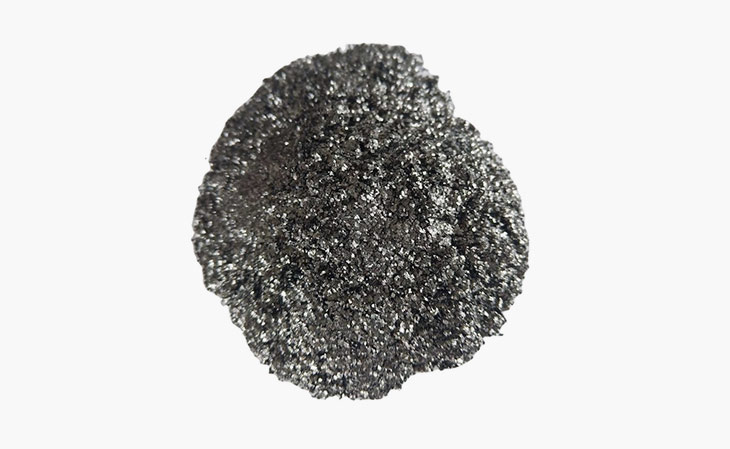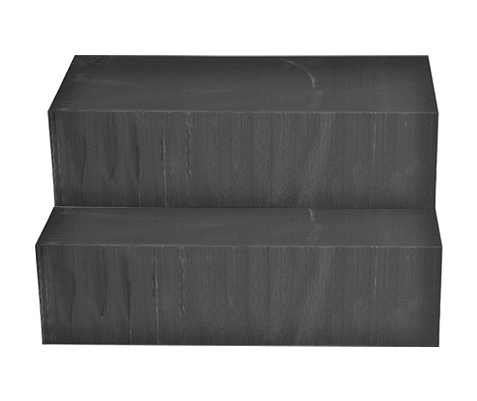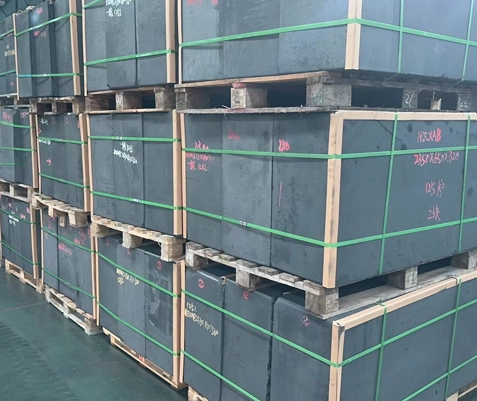Graphite blocks are typically classified based on their manufacturing process, resulting in distinct characteristics and applications.
Extruded Graphite Blocks:
Extruded graphite blocks are formed by forcing a paste of graphite and binder through a die, creating a long, continuous shape. This process results in a porous structure with low density and good thermal conductivity.
Isostatically Pressed Graphite Blocks:
Isostatically pressed graphite blocks are manufactured by subjecting a graphite powder to high pressure from all directions. This process consolidates the powder into a dense, homogeneous material with high strength and low porosity.
Vibrated Graphite Blocks:
Vibrated graphite blocks are produced by pouring a graphite slurry into a mold and vibrating it to compact the material. This method creates a dense block with a coarser grain structure than extruded or isostatically pressed blocks.
Molded Graphite Blocks:
Molded graphite block are formed by packing graphite powder into a mold and then heating it under pressure to consolidate the material. This process can be used to create custom shapes with specific dimensions and properties.
The choice of graphite block type depends on the specific application requirements. For example, extruded blocks are often used for heat sinks and crucibles due to their good thermal conductivity, while isostatically pressed blocks are preferred for electrodes and bearings due to their high strength and wear resistance.
Here's a table summarizing the key characteristics of each type of graphite block:
| Type | Porosity | Density | Strength | Thermal Conductivity | Applications |
| Extruded | High | Low | Low | Good | |
| Isostatically Pressed | Low | High | High | Very good | |
| Vibrated | Medium | Medium | Medium | Good | Molds, furnace components |
| Molded | Varies | Varies | Varies | Varies | Custom shapes, specific applications |
With WH graphite manufacturer and products supplier, The unique properties of graphite blocks make them valuable materials for a wide range of applications in various industries. Their thermal conductivity, electrical conductivity, wear resistance, and chemical inertness make them essential components in applications that demand heat transfer, electrical conduction, mechanical support, and resistance to corrosion. From electrodes in electric furnaces to crucibles for high-temperature applications, from molds for precision casting to seals in harsh environments, graphite blocks continue to play a vital role in modern technology.
 English
English
